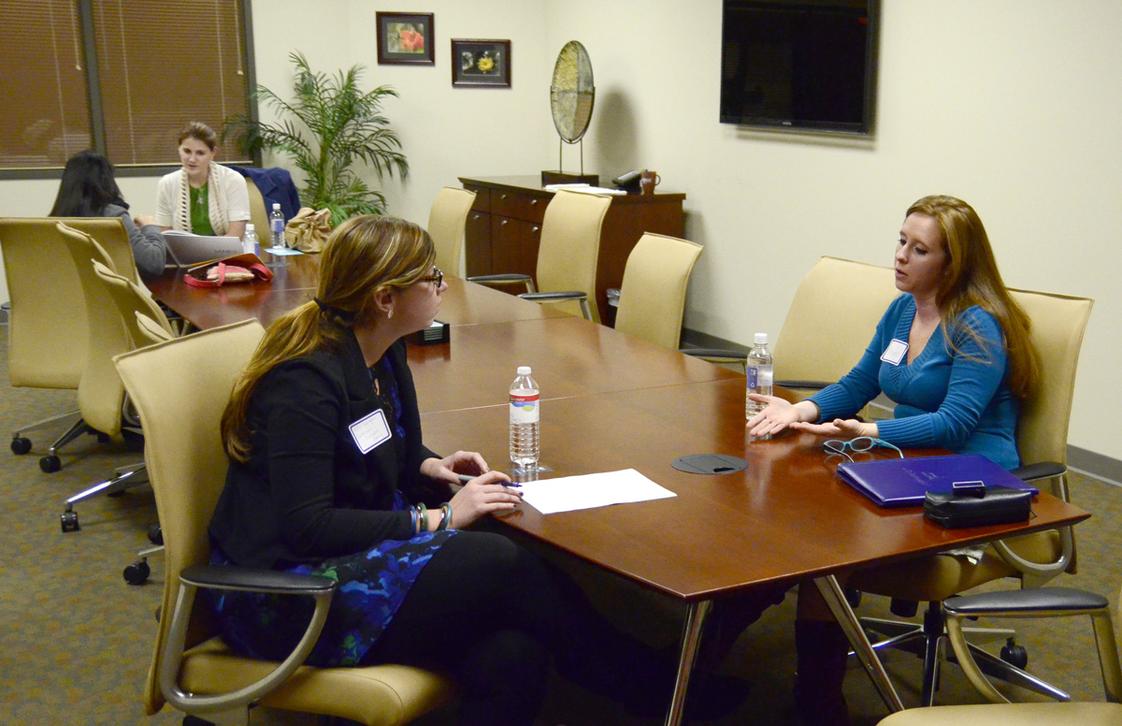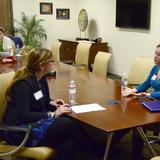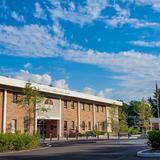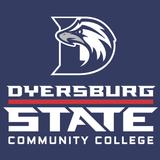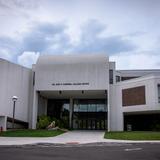The average community college acceptance rate in Tennessee is approximately 80% per year (2025).
The most selective college in Tennessee is currently Baptist Health Sciences University, with an acceptance rate of 35%.
Acceptance Rate Range: 35%
100%
Avg. Acceptance Rate: 80%
Most Selective Community Colleges in Tennessee (2025)
College
Acceptance Rate
Location
Rank: #11.
Baptist Health Sciences University
Private not-for-profit
Acceptance Rate: 35%
1003 Monroe Ave
Memphis, TN 38104
(901) 572-2468
Memphis, TN 38104
(901) 572-2468
Rank: #22.
Nossi College of Art and Design![Nossi College of Art and Design Photo - Nossi College of Art, located a few miles from downtown Nashville with easy access to most interstates, gives creative students a college built specifically for them. Nossi College of Art and Design Photo - Nossi College of Art, located a few miles from downtown Nashville with easy access to most interstates, gives creative students a college built specifically for them.]()
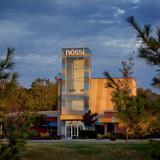
Private for-profit
Acceptance Rate: 47%
590 Creative Way
Nashville, TN 37115
(615) 514-2787
Nashville, TN 37115
(615) 514-2787
Rank: #33.
John A Gupton College
Private not-for-profit
Acceptance Rate: 52%
1616 Church St
Nashville, TN 37203
(615) 327-3927
Nashville, TN 37203
(615) 327-3927
Rank: #44.
Acceptance Rate: 58%
2298 Rosa L Parks Blvd
Nashville, TN 37228
(615) 383-4848
Nashville, TN 37228
(615) 383-4848
Rank: #55.
Remington College-Nashville Campus
Private not-for-profit
Acceptance Rate: 74%
441 Donelson Pk Ste 150
Nashville, TN 37214
(615) 889-5520
Nashville, TN 37214
(615) 889-5520
Rank: #66.
Remington College-Memphis Campus
Private not-for-profit
Acceptance Rate: 83%
2710 Nonconnah Blvd
Memphis, TN 38132
(901) 291-4239
Memphis, TN 38132
(901) 291-4239
Rank: #77.
Concorde Career College-Memphis
Private for-profit
Acceptance Rate: 92%
5100 Poplar Avenue, Suite 132
Memphis, TN 38137
(901) 761-9494
Memphis, TN 38137
(901) 761-9494
Rank: #88.
Acceptance Rate: 99%
276 Patton Lane
Harriman, TN 37748
(865) 354-3000
Harriman, TN 37748
(865) 354-3000
Rank: #9 - 139. - 13.
Acceptance Rate: 100%
3535 Adkisson Drive
Cleveland, TN 37312
(423) 472-7141
Cleveland, TN 37312
(423) 472-7141
Rank: #9 - 139. - 13.
Acceptance Rate: 100%
1510 Lake Rd
Dyersburg, TN 38024
(731) 286-3350
Dyersburg, TN 38024
(731) 286-3350
Rank: #9 - 139. - 13.
Acceptance Rate: 100%
5983 Macon Cove
Memphis, TN 38134
(901) 333-5000
Memphis, TN 38134
(901) 333-5000
Rank: #9 - 139. - 13.
Acceptance Rate: 100%
500 South Davy Crockett Parkway
Morristown, TN 37813
(423) 585-2600
Morristown, TN 37813
(423) 585-2600
Rank: #9 - 139. - 13.
Hussian College-Daymar College Murfreesboro
Private for-profit
Acceptance Rate: 100%
415 Golden Bear Court
Murfreesboro, TN 37128
(717) 380-1385
Murfreesboro, TN 37128
(717) 380-1385
Frequently Asked Questions
What is the Tennessee average community college acceptance rate?
The Tennessee average community college acceptance rate is 80% for 2025.
What are the most selective community college in Tennessee?
The most selective community college in Tennessee include Baptist Health Sciences University, Nossi College of Art and Design and John A Gupton College.
Recent Articles

Obtaining Your Bachelor's Degree at a Community College
Explore the evolving landscape of community colleges offering bachelor's degrees, addressing affordability, accessibility, and workforce needs.

A to Z of Community College Certificates and Courses
From business and healthcare to technology and skilled trades, the article showcases the breadth of options available to students seeking to enhance their knowledge, develop new skills, or pursue career advancement.

What is a Community College?
This comprehensive guide explains what a community college is, its history, and its role in higher education. It covers the types of programs offered, differences from four-year colleges, benefits of attending, and important considerations for prospective students, providing valuable insights for those exploring educational options.

